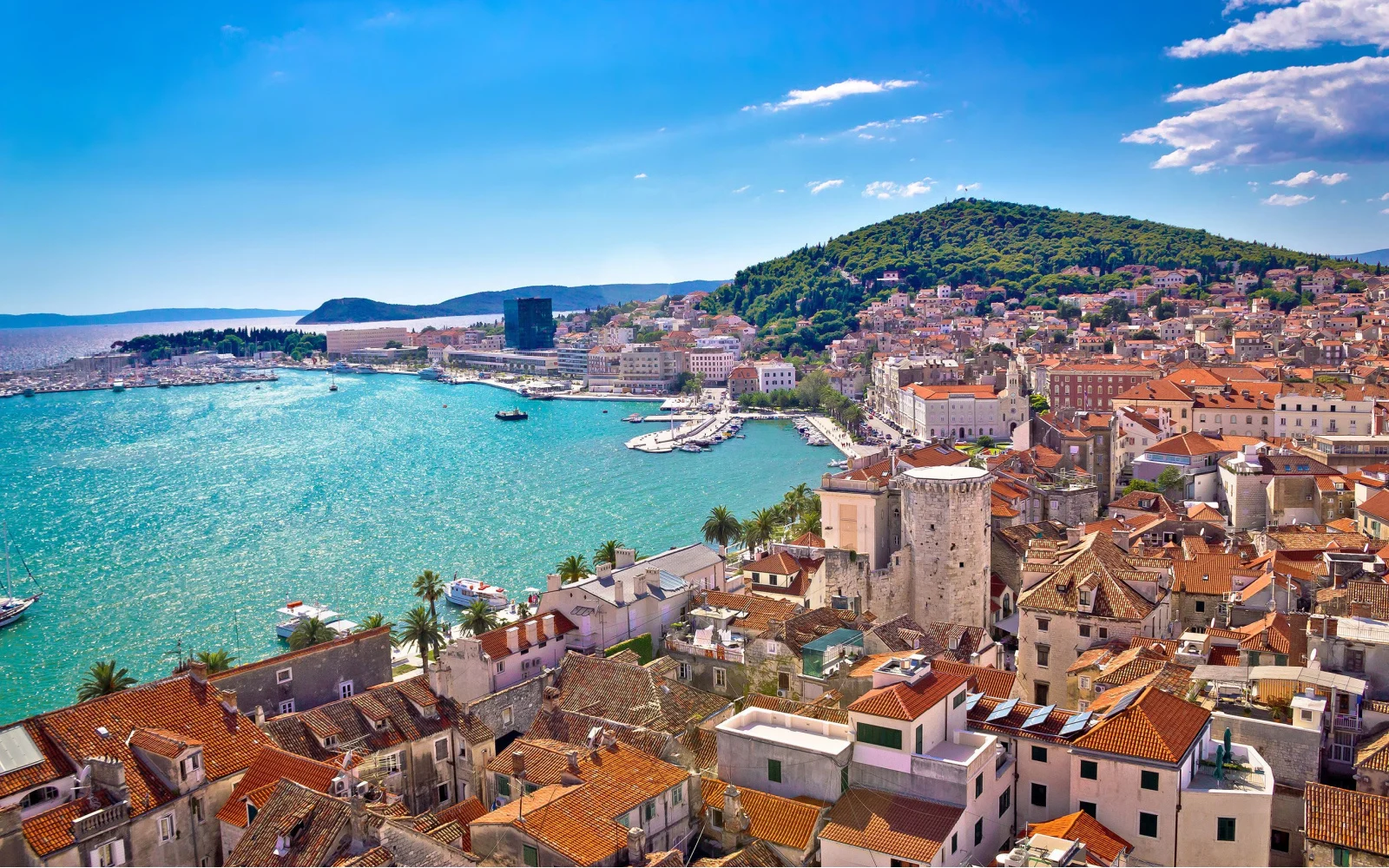Croatia is considered very safe to visit, with low crime rates and a Level One travel advisory issued by the United States, indicating that travelers should exercise normal precautions.
The country ranks 14th in the Global Peace Index, reflecting its safety. While petty crimes like pickpocketing and scams exist, they are not as prevalent as in some other tourist destinations, and violent crime rates are very low.
Croatia is one of the fastest-growing tourist destinations in the world. Nearly 20 million tourists visit the country each year, no small number for a country with a population of less than four million people.
The main draw in Croatia is its beautiful coastline. Visitors flock to the medieval walls of Dubrovnik, popularized by Game of Thrones, explore the Roman ruins (and beach clubs) of Split, and lounge on over a thousand kilometers of coastline.
Remote islands and beautiful natural parks such as Plitvice offer the perfect getaway for lovers of rugged nature. Plus, the food is delicious, offering a tasty mix of Greek, Italian, and local flavors, especially in the northern region of Istria.
But while it’s rich in history, culture, and amazing food, is Croatia safe to visit? Here’s our take.
Is Croatia Safe to Visit in 2025?
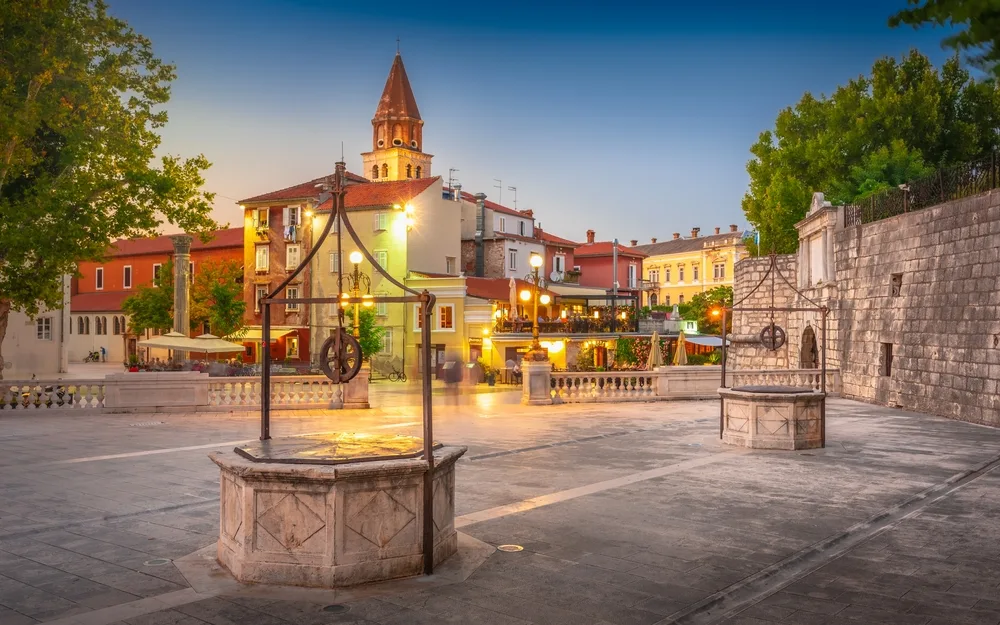
Cedant/Shutterstock
Yes. Croatia is very safe to visit! Although many people associate it with the brutal war of the 1990s, the war is long gone, and the country is now one of the safest in Europe.
There may be some petty crime in popular tourist destinations, but even this risk is fairly low. A quick look at travel advisories, including those from countries known in the travel community for advising an abundance of caution in their travel advisories, shows that Croatia is generally considered safe.
For example, the United States issues only a Level One travel advisory for Croatia, advising its citizens to just exercise normal precautions in the country.
Croatia is actually considered one of the safest countries in Europe and in the world. According to the Global Peace Index, Croatia is the 14th safest country in the world. This ranking is conducted by evaluating several different factors, including crime and militarization.
This shows that Croatia has come a long way since its days as a war-torn country. From 1991–1995, Croatia fought in a brutal war of independence that was part of the breakup of Yugoslavia.
Many people who are concerned about their safety in Croatia are thinking about this war and worried it may still impact their safety.
It is true that the war has its effect on Croatian society to this day, such as the presence of landmines in some remote areas and ethnic tensions between Croats and remaining Serbs in the country, which especially flare up around important commemoration dates.
However, as a tourist, you are highly unlikely to be affected by anything related to the war, which has been over for nearly 30 years. Of course, Croatia does have its problems, including some crimes that may affect tourists.
Common crimes include:
- Pickpocketing
- Bag snatching
- Tourist scams
- Drink spiking
- Assault
The risk of terrorism in Croatia is very low, and there have been no major attacks in Croatia in recent years. In 2022, there was a spate of bomb threats targeting public institutions such as government buildings as well as popular attractions such as shopping malls, but all of the threats were proven to be hoaxes.
Croatia is also at some risk of natural disasters. The country is in an active earthquake zone and has experienced an increase in seismic activity recently, including two severe earthquakes in 2020 that caused significant damage in Zagreb, the capital, and other continental areas, such as the town of Petrinja.
If an earthquake happens, head outside or take shelter in a secure structure. On the coast, there is some risk of severe storms and rain, including flooding. The coast also has a unique natural phenomenon, the bura wind.
This strong wind is one of the most powerful in the world. In the winter, the wind can get so severe that the country has to cancel ferry lines and shut down parts of the coastal highway. Avoid any water-based activities during periods of the bura — if the locals don’t do it, you shouldn’t either.
Crime in Croatia
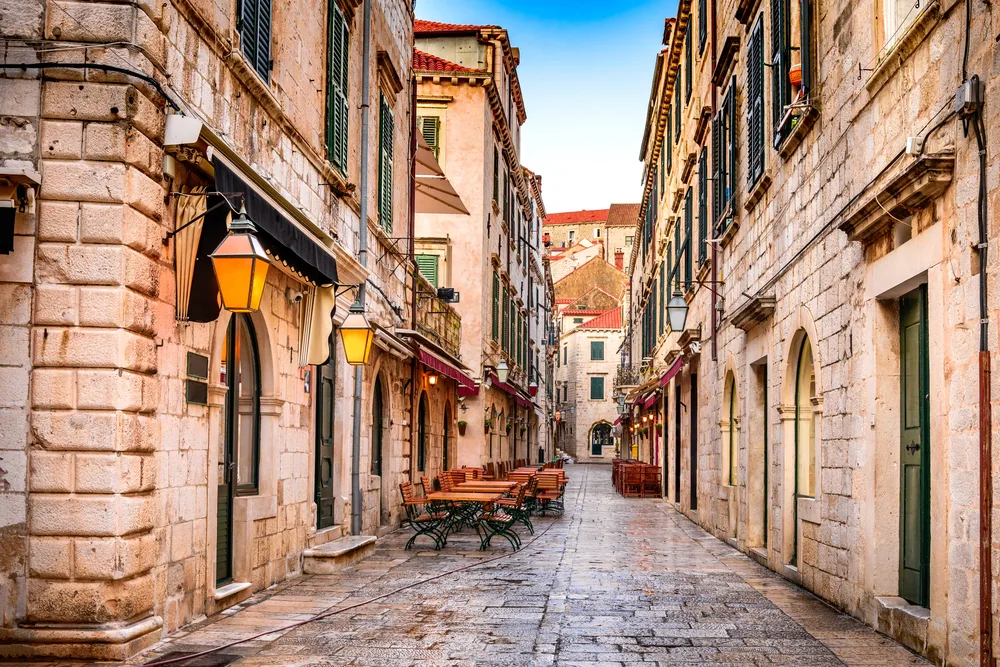
ecstk22/Shutterstock
Croatia is a very safe country in part because it has a very low crime rate. Although crime still occurs, the incidents are very rare. What is heartening about Croatia’s crime statistics is that the violent crime rate is very low.
The homicide rate in Croatia is just 0.81 incidents per 100,000 people. When the homicide rate is that low, that usually means that other violent crimes are low as well.
Most violent crimes, such as assault, occur between people who know each other, such as instances of domestic violence. The rate of property crimes in Croatia is slightly higher than the rate of violent crimes. For example, the vehicle theft rate is 17.2 incidents per 100,000 people.
According to Croatian police, property crimes make up about 57.2% of total crimes committed in the country. The most common property crime is grand larceny, followed by burglary and vehicle theft.
One problem with Croatian crime statistics is that there is relatively little information available about street crime and petty theft, which is statistically the problem most likely to affect tourists to the country.
The most recent crime statistics published are from 2020, when the country spent much of the time under lockdown, and the tourism season, usually the peak for petty theft, was much lower than usual.
Anecdotal evidence from visitors signals that petty theft does occur in Croatia but that it isn’t nearly as much of a problem here as it is in other popular Mediterranean destinations.
According to the Organized Crime Index, more serious crimes do occur in Croatia, such as human trafficking of migrants, heroin trafficking, and embezzlement, but these incidents rarely, if ever, affect tourists.
In general, Croatia is safe to visit. Although you may experience crime, and petty crime tends to congregate in touristy areas, it is a safe destination to visit and not one where you will need to look over your shoulder all the time.
Petty Theft
The most common crime you may encounter in Croatia is petty theft. In the crowded streets of popular coastal cities during the peak of tourism season, nimble-fingered pickpockets operate and part tourists from their valuables.
The United Kingdom mentions the risk of pickpocketing and petty theft in its travel advisory for Croatia. Pickpockets tend to operate in Croatia’s most popular tourist destinations, including:
- Dubrovnik
- Split
- Zagreb
- Popular music festivals
When you are in a crowded area, make sure that you put your valuables somewhere that is hard for someone to reach without you noticing. A pickpocket can easily reach into an open tote bag but may have a bit more trouble with a zipped cross-body bag made with a slash-proof fabric.
Another important precaution you can take is never to leave your valuables unattended. Thieves often operate on Croatia’s popular beaches, so make sure that you leave your passport and credit cards in your hotel safe while you’re swimming.
Another time when thieves take advantage of tourists’ lack of attention is on café and restaurant patios, so don’t leave your phone and wallet on the table. A far greater risk to the wallet of tourists is the local scammer. Scams are common throughout Croatia, especially overcharging.
Scammers tend to operate in seedy establishments such as gentlemen’s clubs. Guests enter expecting one price, then run up a running tab and are surprised at the end of the night to find that they have been charged thousands of dollars.
Avoid places with a bad reputation, usually gentleman’s clubs, as they sometimes threaten guests with violence to make them pay up.
Other nightlife establishments sometimes overcharge their guests, so make sure that you pay ahead of time instead of opening a tab, as that is harder for scammers to maneuver. For excursions or taxi rides, always agree on a price ahead of time. Most taxis have meters, so make sure that the taxi drivers turn it on.
Assault
Croatia has become known as a party destination for young people. With that hedonistic free spirit comes some of the negative associations of being a party destination, such as a higher rate of assault.
There have been assaults and sexual assaults, including those affecting tourists, linked to Croatia’s nightlife and party scene. The Australian government warns about the risk of partying in Croatia in its travel advisory.
Unfortunately, drink spiking is among the problems visitors should be aware of. When attending festivals or clubs, always keep an eye on your drinks.
Tourists, especially female tourists, have been sexually assaulted in the country before. If you are a woman traveling in Croatia, you don’t have to be constantly vigilant, but a few precautions are necessary.
Never go to clubs or parties alone — always go with at least one other person that you know. Never go off with a stranger alone, and monitor your drink intake. Much as you may want to let loose, with caution, you can do so and still be safe.
Avoiding Bad Areas
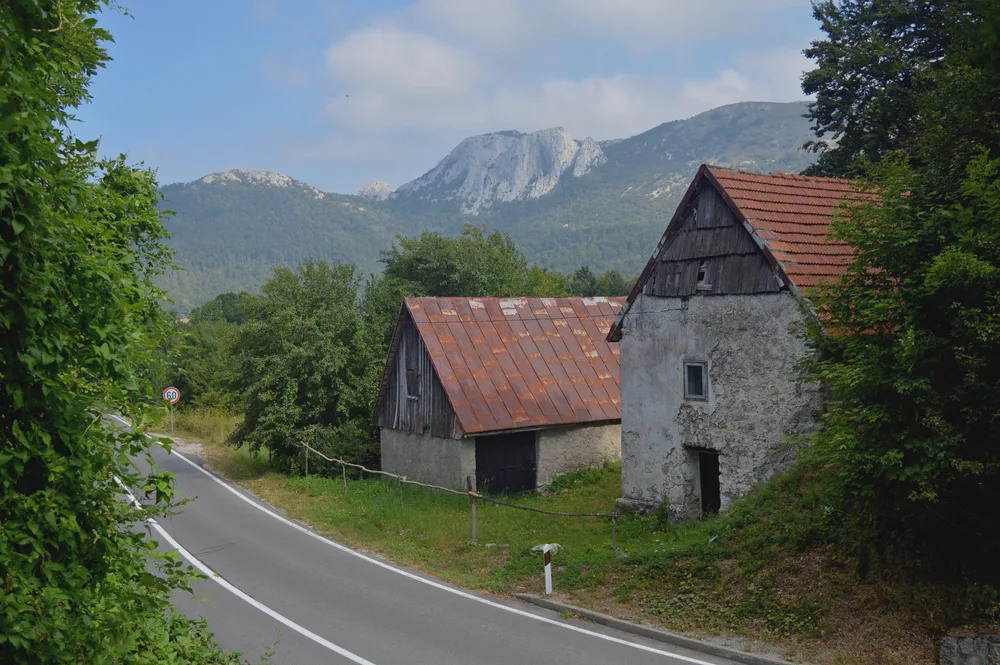
ivica9/Shutterstock
Croatia is such a safe country that there are really no areas that you need to avoid completely due to crime. However, you should be careful about the risks of landmines.
There are still some unexploded ordinances left over from the war in:
- Eastern Slavonia
- Rural Lika
- Rural Zadar County
- Around Karlovac
Most of these places are pretty far from the beaten path, with the exception of Plitvice Lakes National Park. Plitvice was actually a hotspot of conflict during the war, and some very remote parts of the park may still have landmines.
When exploring the countryside, as long as you stick to marked trails, you should be safe from the threat of mines.
Frequently Asked Questions
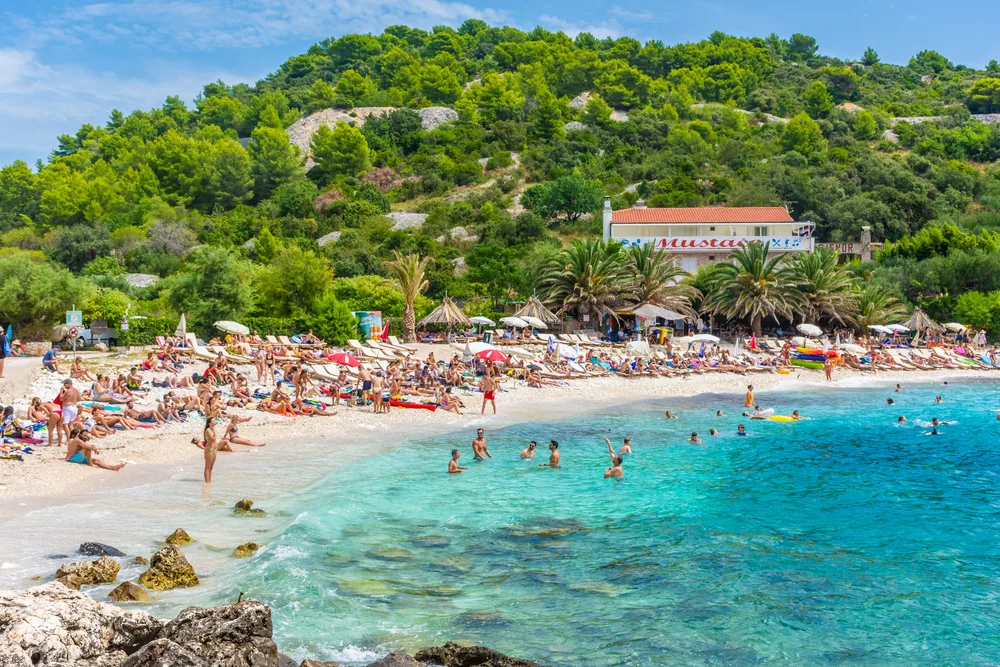
HVAR, CROATIA, AUGUST 8 2019: The beautiful Pokoniji Dol Beach in Hvar Island, Adriatic Stefano Zaccaria/Shutterstock
Here are a few common questions people usually want to ask before visiting Croatia:
How safe is Croatia for tourists?
Croatia is very safe for tourists. It has a low crime rate and low risks of other dangers. However, tourists should still use their common sense while on vacation.
Is it safe to travel to Croatia at the moment?
Yes, it is safe to travel to Croatia at the moment. Most countries advise their citizens that a visit to Croatia is very safe.
Is it safe to travel to Croatia during the Ukraine war?
Yes, it is safe to travel to Croatia during the Ukraine war. Although both countries are in Eastern Europe, Ukraine is very far away from Croatia, and the war is unlikely to affect this small country.
Is Croatia safe for female tourists?
Croatia is very safe for female tourists. However, female tourists looking to explore the country’s nightlife should take precautions to protect themselves, such as not accepting drinks from strangers.
Is it safe for Serbs to visit Croatia?
While there have been high-profile incidents before, many Serbs visit Croatia safely each year. Serb visitors are safer if they stick to bigger cities that tend to be more open-minded, park cars with Serb license plates in secure locations, and avoid visiting during important national holidays.
So, Is Croatia Safe to Visit?
Croatia is a very safe country to visit. Although some crime still occurs, it has a very low crime rate and is safe for visitors. So, with so much to see and do, what are you waiting for — book your trip to Croatia today!



